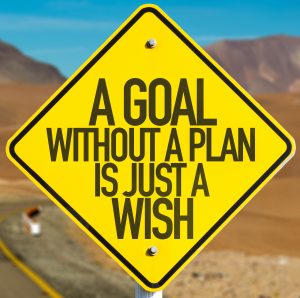Career Goals 2020: The Why, What & How
According to The New York Times, a full-time employee will spend roughly 80,000 hours at work over his/her lifetime. Without intentional action and a purposeful plan, it’s easy to let tens of thousands of hours pass you by before you wonder why you aren’t where you hoped to be or creating meaning in the ways you once envisioned. This is where career planning comes in – and the start of the New Year is the perfect time to commence momentum.
Every individual, whether gainfully employed in their ideal position or amidst the road to perseverance for an open door, can benefit tremendously from some serious, success-oriented soul searching.
THE WHY
It’s hard to know what you are striving for unless you assess the reasons behind what you want. Do you have a job you love but need greater financial stability? Is your income in range but your day to day tasks lack meaning and create dread? Is there a skill you hope to gain that would bring more distinction to your team and success to your organization?
Ultimately, the changes you are seeking should be rooted in what you value – not what you lack or what you are passionate about. It’s idealistic to think that you can acquire every skill and turn everything you are passionate about into a living. Career planning is less about filling an empty hole or fueling a fire, and more about prioritizing core values and adapting them into gradually progressive outcomes.
THE WHAT
This is often the hardest part of career planning, once you know what you value – how do you know what you can do with it? Many employees find it helpful to start with an inventory of their current skills and experience as a foundation. The next step is to engage in career research. If you are looking to remain in the same industry, start by researching companies in your field online, reading industry-related publications and browsing job titles and descriptions within your interest scope. If you are considering a career move or are a recent graduate, consider volunteer work to gain diverse experiences, set-up some job shadowing opportunities and activate your social circle by asking about their exact roles and companies and sharing where you are at.
The most critical aspect of setting ‘the what’ of your career goal is being realistic. If your dream position requires 5-7 years of experience and a special certification you don’t have yet, your ultimate goal might need to be broken down into several steps over the course of a 3-year period. From this you can create an annual career goal for where you hope to land at the end of 2020. If your career resolution for the New Year involves a specific salary goal, be prepared to conduct some very specific research that accounts for job titles, experience levels, education , location and a benefits allotment. A range is always more pragmatic than a hard and fast desired number.
THE HOW
Life is a balancing act and setting career resolutions is just part of the juggle. As you determine how you will accomplish your professional goals in 2020, consider what your personal ones are too. Avoid setting large goals in all scopes of life at the same time. 2020 may not be your year to lose 100 pounds, have your first child and become a C-level executive, but you can prioritize your largest goal and allot the most action items in that category.
The ‘how’ portion of your progress in the New Year is going to be very specific to what your personal career goal is. Examples include seeking and engaging in networking opportunities, finding a like-minded accountability partner, creating a challenge calendar and enabling time for reflection on how progress is coming along and re-adjusting as necessary.
The steps you plan to take in 2020 should be specific, actionable and measurable with deadlines. Rather than ‘start attending networking events’, for example, decide you will ‘attend one new networking event per month and send 3 follow-up emails per engagement.’ Instead of ‘calling my accountability partner every Friday’, try ‘setting a recurring calendar item for a call every Friday at 3pm and include a weekly agenda: share one win, share the week’s greatest challenge and set an accountability statement for the week to follow.’
Calendar. Calendar. Calendar. Whether or an old-fashioned planner or a smart phone app is your style, commit to a calendar that you will use daily. Utilize one calendar and adopt one method to track your progress and you will soon be eating your 2020 career goals for breakfast – or at least dunking them in your coffee!
Resources Used:
Glassdoor: How to Stick to Your New Year’s Career Resolutions – https://www.glassdoor.com/blog/new-years-career-resolutions/
The Balance: 8 Tips for Setting Career Goals for the New Year – https://www.thebalancecareers.com/setting-career-goals-for-the-new-year-2059751
The New York Times: Thinking About a Job or Career Change? Read This – https://www.nytimes.com/2019/12/01/smarter-living/thinking-about-a-job-or-career-change-read-this.html
Forbes: 4 Strategies To Boost Your Career In The New Year – https://www.forbes.com/sites/ashiraprossack1/2018/12/27/boost-your-career-new-year-2019/#7eee776360f5

